Year 6
The English curriculum is built around the three interrelated strands of language, literature and literacy. Teaching and learning programs should balance and integrate all three strands. Together, the strands focus on developing students' knowledge, understanding and skills in listening, reading, viewing, speaking, writing and creating. Learning in English builds on concepts, skills and processes developed in earlier years, and teachers will revisit and strengthen these as needed.
In Years 5 and 6, students communicate with peers and teachers from other classes and schools, community members, and individuals and groups, in a range of face-to-face and online/virtual environments.
Students engage with a variety of texts for enjoyment. They listen to, read, view, interpret and evaluate spoken, written and multimodal texts in which the primary purpose is aesthetic, as well as texts designed to inform and persuade. These include various types of media texts including newspapers, film and digital texts, junior and early adolescent novels, poetry, non-fiction and dramatic performances. Students develop their understanding of how texts, including media texts, are influenced by context, purpose and audience.
The range of literary texts for Foundation to Year 10 comprises Australian literature, including the oral narrative traditions of Aboriginal and Torres Strait Islander Peoples, as well as the contemporary literature of these two cultural groups, and classic and contemporary world literature, including texts from and about Asia.
Literary texts that support and extend students in Years 5 and 6 as independent readers describe complex sequences, a range of non-stereotypical characters and elaborated events including flashbacks and shifts in time. These texts explore themes of interpersonal relationships and ethical dilemmas within real-world and fantasy settings. Informative texts supply technical and content information about a wide range of topics of interest as well as topics being studied in other areas of the curriculum. Text structures include chapters, headings and subheadings, tables of contents, indexes and glossaries. Language features include complex sentences, unfamiliar technical vocabulary, figurative language, and information presented in various types of graphics.
Students create a range of imaginative, informative and persuasive types of texts such as narratives, procedures, performances, reports, reviews, explanations and discussions.
(source: www.australiancurriculum.edu.au)
Achievement Standard
Receptive modes (listening, reading and viewing)
By the end of Year 6, students understand how the use of text structures can achieve particular effects. They analyse and explain how language features, images and vocabulary are used by different authors to represent ideas, characters and events.
Students compare and analyse information in different and complex texts, explaining literal and implied meaning. They select and use evidence from a text to explain their response to it. They listen to discussions, clarifying content and challenging others' ideas.
Productive modes (speaking, writing and creating)
Students understand how language features and language patterns can be used for emphasis. They show how specific details can be used to support a point of view. They explain how their choices of language features and images are used.
Students create detailed texts elaborating on key ideas for a range of purposes and audiences. They make presentations and contribute actively to class and group discussions, using a variety of strategies for effect. They demonstrate an understanding of grammar, and make considered vocabulary choices to enhance cohesion and structure in their writing. They use accurate spelling and punctuation for clarity and make and explain editorial choices based on criteria.
(source: www.australiancurriculum.edu.au)
- Plus Plan
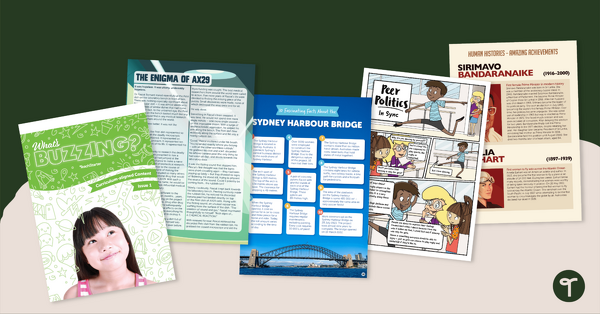
Year 6 Magazine - What's Buzzing? (Issue 1)
A beautifully designed, 26-page reading magazine specifically designed for Year 6 students.
- Plus Plan
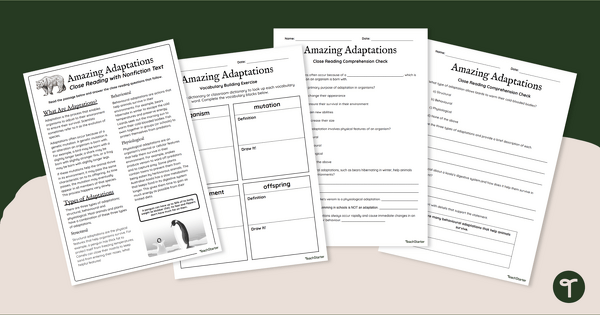
Plant and Animal Adaptations - Reading Comprehension Passage
Boost reading comprehension skills with a comprehension passage, with questions, about structural, behavioural and physiological adaptations.
- Plus Plan
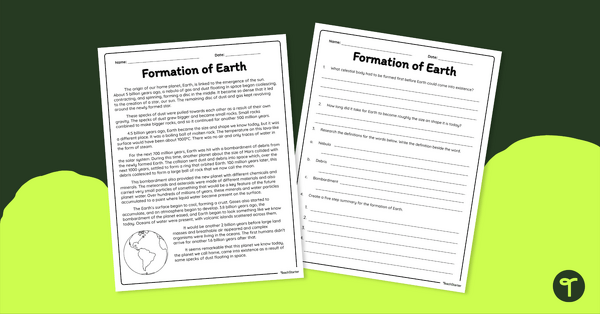
Formation of Earth - Reading Comprehension Worksheet
Combine reading and science content with a reading comprehension worksheet that focuses on the formation of Earth.
- Free Plan
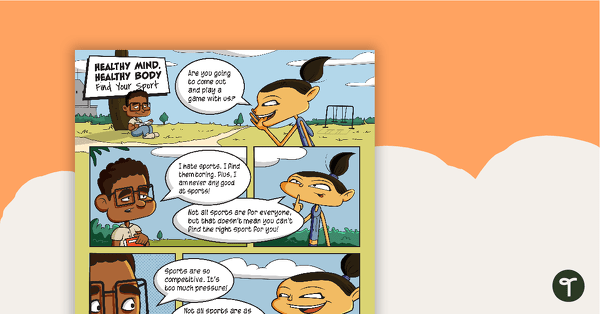
Healthy Body, Healthy Mind: Find Your Sport – Comprehension Worksheet
A comprehension worksheet for a comic about the importance of physical activity to a healthy lifestyle.
- Plus Plan
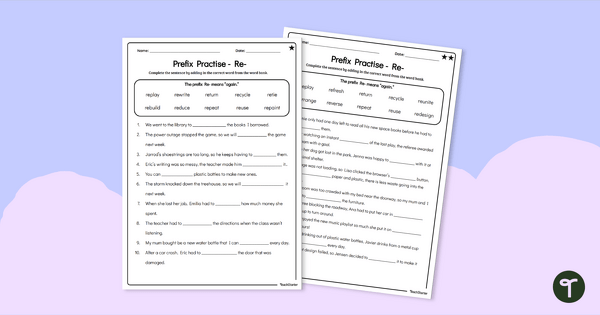
Words with Prefixes Worksheet - Prefix Re-
Build students' understanding of the prefix re-.with a printable prefix worksheet.
- Plus Plan
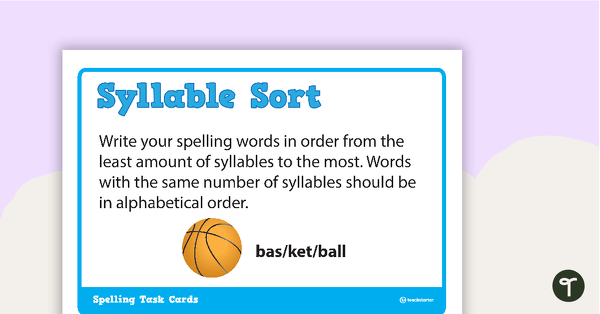
Spelling Task Cards
A set of 57 spelling task cards.
- Plus Plan

Analysing Poetry Teaching Slides
Teach your students how to analyse poetry using the SMILE technique with this comprehensive and age-appropriate slide deck.
- Plus Plan
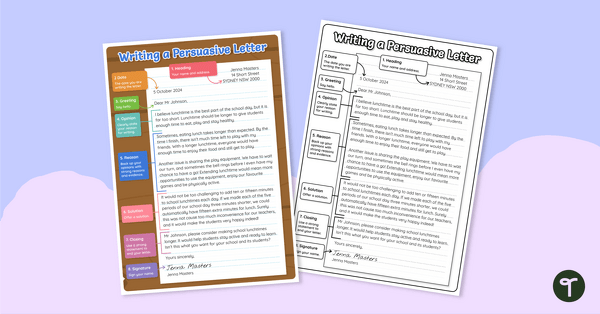
Writing A Persuasive Letter Poster
A poster showing students how to lay out a persuasive letter.
- Plus Plan
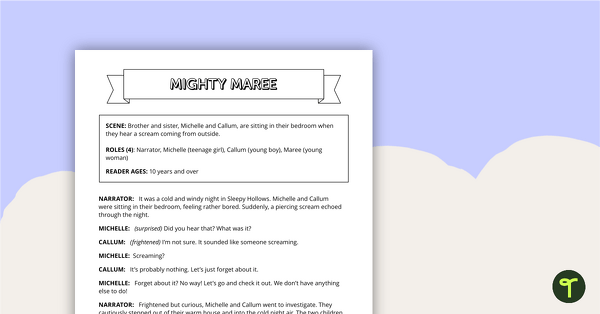
Readers' Theatre Script - Mighty Maree
A script which can be used during readers' theatre or Drama sessions, aimed at students 10 years and over.
- Plus Plan
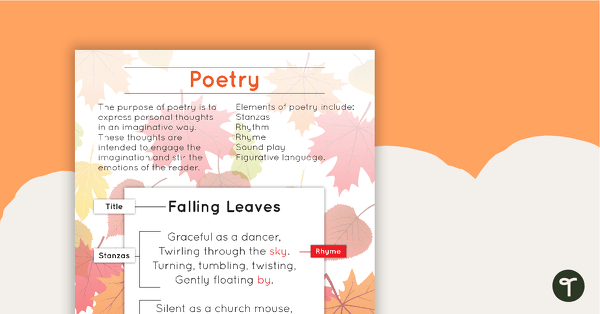
Poetry Poster with Annotations
Use this poetry poster to introduce your students to the structure and language features of poems through an annotated example.
- Plus Plan
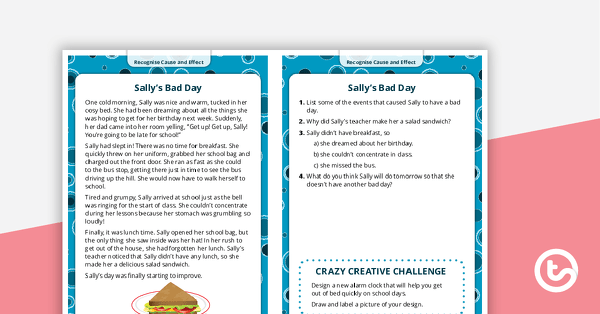
Comprehension Task Cards - Recognising Cause And Effect
A set of comprehension task cards to help students recognise cause and effect when reading.
- Plus Plan
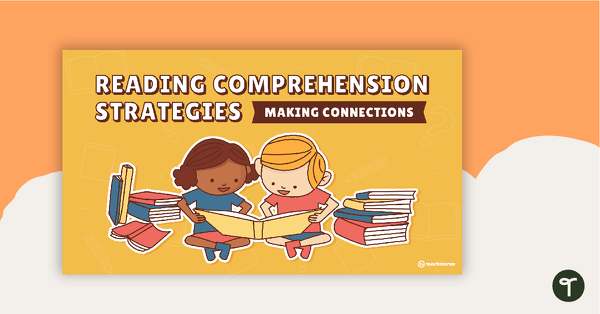
Reading Comprehension Strategies PowerPoint – Making Connections
A 14 slide editable PowerPoint template explaining the reading comprehension strategy of making connections.
- Plus Plan
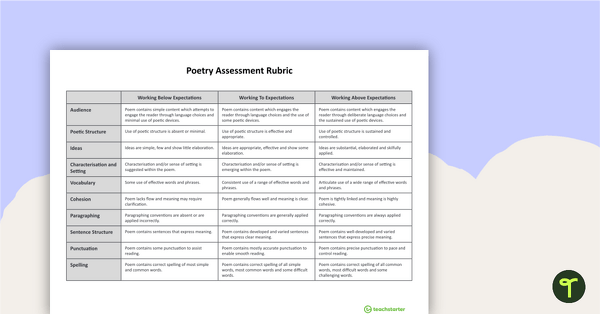
NAPLAN-Style Assessment Rubric for Poetry
A NAPLAN-style rubric designed to help teachers to assess student's poetry.
- Plus Plan
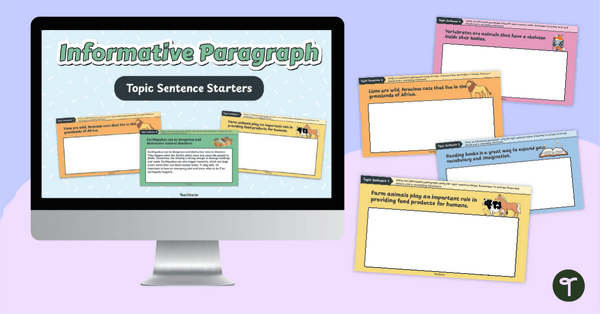
Informative Paragraph Topic Sentence Starters - Interactive Slides
Build your students’ writing skills with a set of digital informative paragraph writing prompts.
- Plus Plan
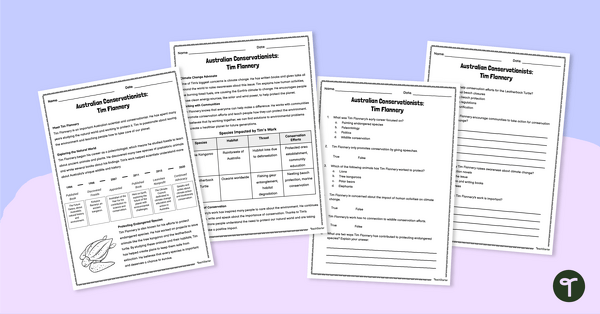
Australian Conservationists: Tim Flannery – Comprehension Worksheet
Learn about Tim Flannery and his conservation work with this 2-page reading passage and accompanying comprehension questions.
- Plus Plan
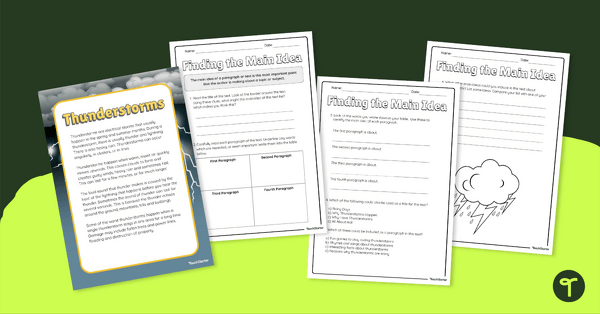
Finding the Main Idea - Comprehension Task (Thunderstorms)
A task to use when teaching your students reading comprehension strategies.
- Plus Plan
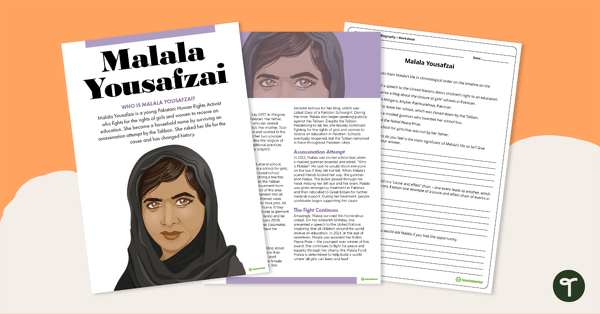
Malala Yousafzai Biography – Read and Respond Worksheet
A comprehension activity related to a biographical text.
- Plus Plan
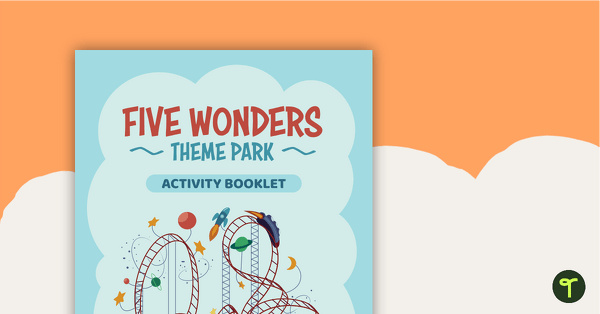
Five Wonders Theme Park: Slither House Sketch – Project
An inquiry project that encourages students to research animals and their habitats and design a reptile house in a theme park.
- Plus Plan
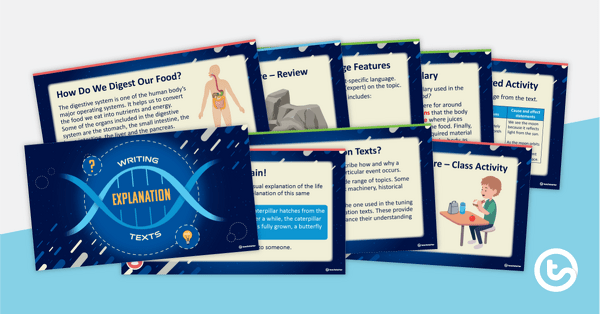
Writing Explanation Texts PowerPoint
A 33-slide editable PowerPoint template to use when teaching your students about explanation writing.
- Free Plan
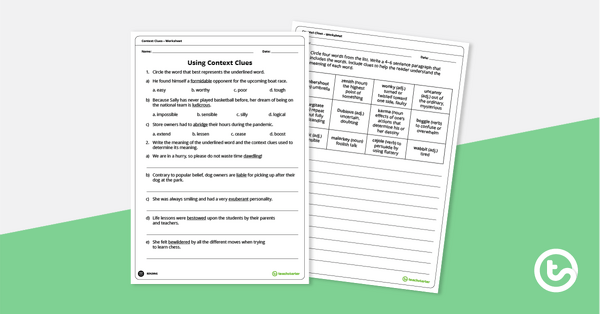
Using Context Clues – Worksheet
A worksheet to practise using context clues when reading.
- Plus Plan
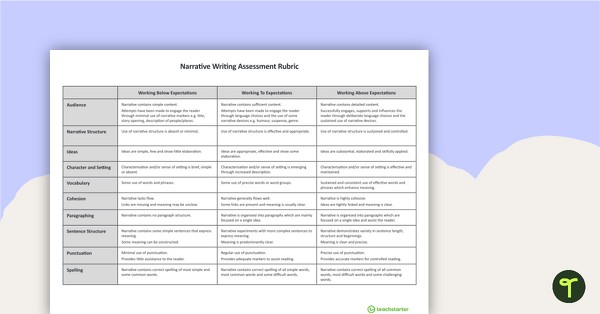
NAPLAN-Style Assessment Rubric - Narrative Writing
A NAPLAN-style rubric designed to help teachers to assess students' narrative writing.
- Plus Plan
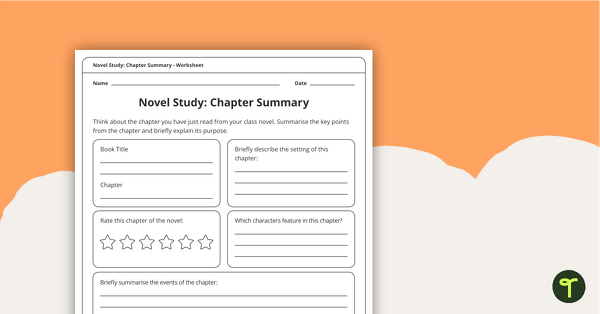
Novel Study – Chapter Summary Worksheet
Reflect on a chapter in a class novel using this one-page worksheet.
- Plus Plan
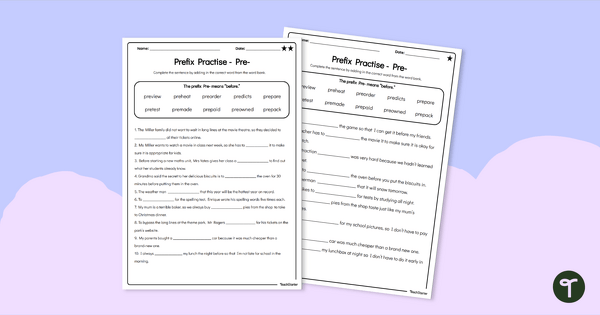
Pre- Prefixes Worksheet
Boost students' understanding of the prefix pre- with a printable prefix worksheet.
- Plus Plan
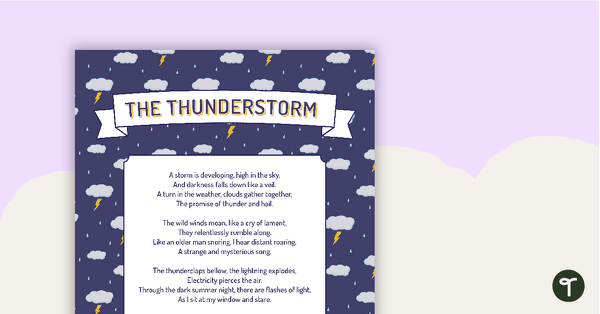
Elements of Poetry Worksheet - Sound Devices
A worksheet to help students understand sound devices in poetry.
- Plus Plan
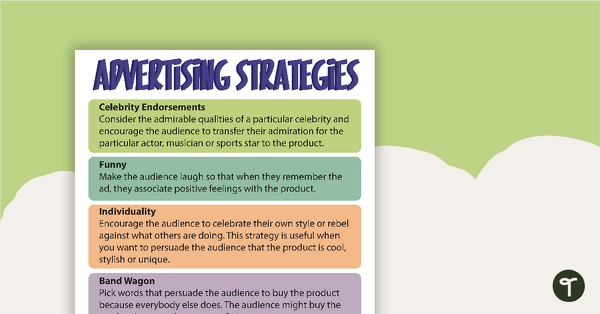
Healthy Lifestyle - Advertising Challenge
A fun advertising challenge to use in the classroom for students to persuade others to live a healthy lifestyle.
- Plus Plan
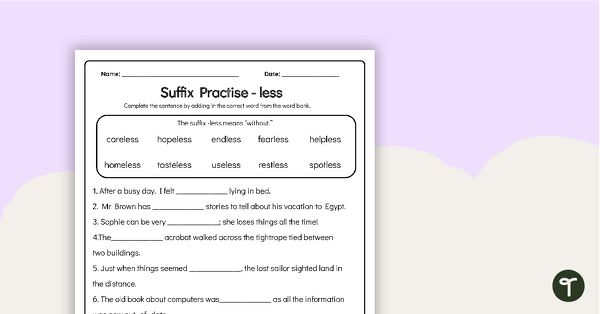
-Less Suffixes Worksheet
Build vocabulary skills with a suffix worksheet featuring the suffix -less.
- Plus Plan
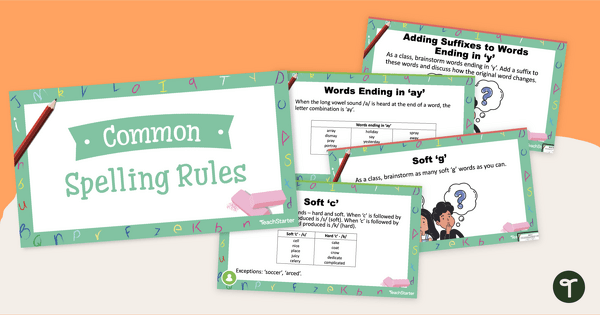
Common Spelling Rules PowerPoint
Boost your students' spelling skills with an instructional slide deck teaching the different spelling rules.
- Plus Plan
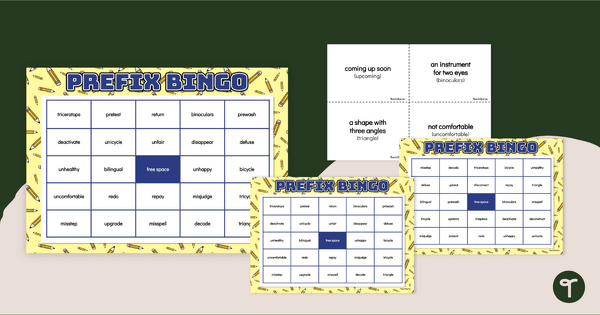
Prefix Bingo
Match prefix words to their definition by identifying the meaning of the prefix and the root word with a fun game of BINGO.
- Free Plan
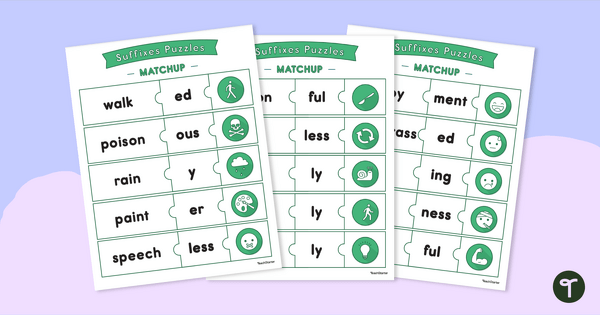
What is an Affix? Suffix Puzzle Pack
Practice building, reading, and understanding the meaning of words with suffixes with a fun set of printable puzzles for kids.
- Plus Plan
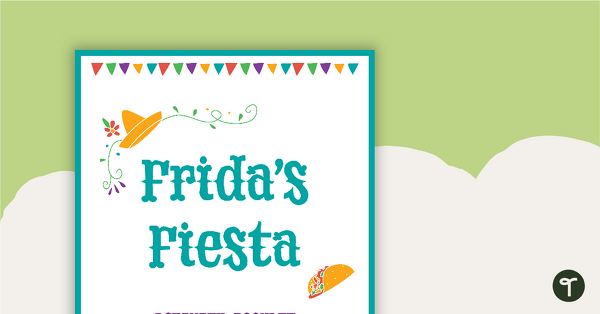
Frida's Fiesta: Open for Business - Inquiry Project
An inquiry project where students get the opportunity to design their own restaurant.
- Plus Plan
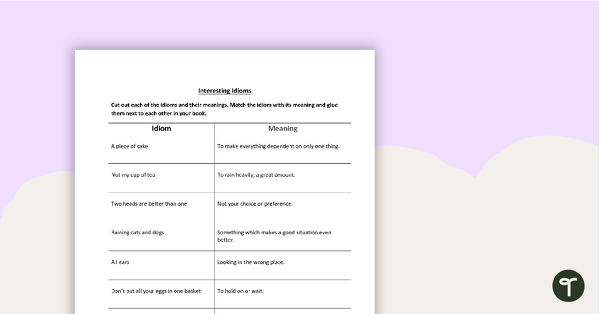
Interesting Idioms Worksheet
A worksheet using common idioms.
- Plus Plan
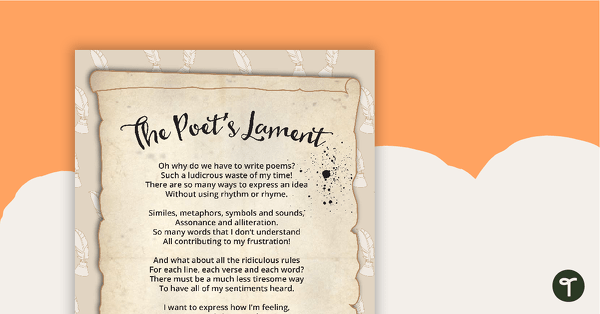
The Poet's Lament - Comprehension
A comprehension activity using a poem.